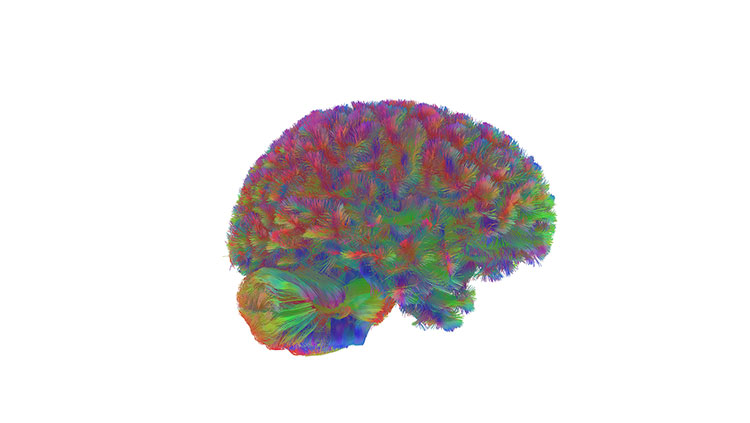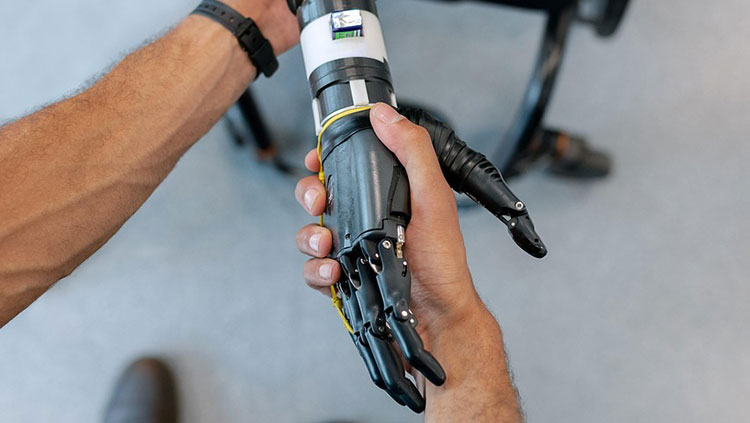ICYMI: Teenagers’ Brains Physically Aged Three Years After 10 Months of Lockdown During the Pandemic
- Published19 Jan 2023
- Author Christine Won
- Source BrainFacts/SfN

We know mental health suffered during the pandemic. New research suggests so did physical brain health, at least for adolescents.
Structural changes in the brain are natural and normal with growth and time. However, a study from Stanford University comparing MRI scans of 81 adolescents from before the pandemic with 82 matched peers after pandemic lockdowns showed accelerated brain maturation or aging, according to findings published December 1 in Biological Psychiatry: Global Open Science.
Researchers said the accelerated development aged adolescent brains prematurely: Their Brain Age Gap Estimation (BrainAGE), a measure of brain health, showed that 10 months of pandemic lockdowns raised their BrainAGE by three years in a manner similar to that seen with exposure to early life adversity such as abuse, neglect, and violence. Early life adversity is known to affect health negatively, contributing to risk factors for disease in adulthood.
Big Picture: Yet unknown is the effect of adolescent adversity on the brain and body into adulthood, and whether these physical brain changes researchers observed are permanent, or if this accelerated aging will continue now that pandemic-related lockdowns are ending. The results could also impact other longitudinal studies involving adolescent population groups, as researchers would have to account for this abnormal neurodevelopment among this pandemic generation.
Read More: Teen brains aged faster than normal from pandemic stress, study says. Washington Post
More Top Stories
- Special Update Since Our Last ICYMI: Lecanemab joined the short list of FDA-approved drugs for treating early Alzheimer's disease in January, despite lingering questions about safety after the deaths of three participants in the Phase 3 trial. While not a cure, studies suggest the intravenous infusion therapy may better slow cognitive decline in the initial stages of the disease compared to other treatments available now. Lecanemab is coming to market as Leqembi at $26,500 per year, and the next question is whether Medicare will cover it. New York Times
- Neurotechnology implants help thousands of people with psychiatric or neurological conditions every day, and the neurotech market is booming. But such rapid growth may not always be sustainable. What happens when these device makers go under, going out of business or discontinuing products, leaving behind thousands of people with now-obsolete electronic devices intimately embedded in their cheeks, brains, or spines? Nature
- Higher levels of vitamin D in brain tissue were associated with up to a 33% lower risk of dementia and mild cognitive impairment. Fortune
- A study of almost 3.4 million people of diverse ancestry identifying over 3,500 genetic variations suggests your genes may affect how much you smoke or drink. Nature
- The science behind hanger may be rooted in evolution. Being hangry may harken back to the days when our ancestors needed extra fuel for motivation to successfully hunt and forage. Washington Post
- Bill Gates and Jeff Bezos are backing Elon Musk’s Neuralink competitor Synchron, which for the first time this year implanted its brain-computer interface in a patient with paralysis and raised $75 million to further develop its mind-reading technology for the potential treatment of paralysis, epilepsy, or traumatic injury, among others. Fierce Biotech
- Drugmakers are jumping on the “magic mushroom” bandwagon, seeking to develop novel psychedelic compounds that may be able to treat mental health disorders like depression and addiction sans the high. WSJ
- Remote mental health care took off during the pandemic quickly, sometimes at the cost of quality. Mental telehealth startups rapidly drew advertisers and investors, but not much oversight and accountability. WSJ
- A comparison of visual perception speeds in 138 different species discovered that dragonflies were the fastest of the group, perceiving 300 flashes per second — almost five times faster than humans. The crown-of-thorns starfish was the slowest of the bunch, detecting just three flashes every four seconds. New Scientist
- Postmortem studies of the brains of 22 toothed whales revealed that of the 18 aged specimens, three showed brain lesions linked to Alzheimer's disease in humans, offering a potential explanation for random strandings. CNN
- Even minimal exercise — just 11 minutes a week — may lower your risk for severe COVID-19. Washington Post
CONTENT PROVIDED BY
BrainFacts/SfN
References
Also In Neuroscience in the News
Trending
Popular articles on BrainFacts.org



















